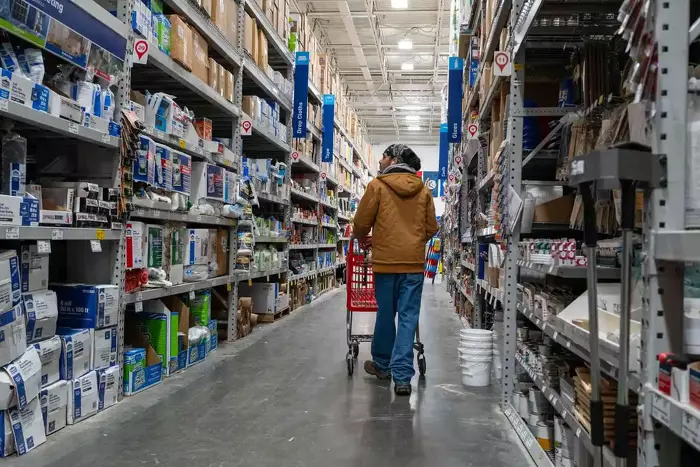The United States' economic system, often characterized as a mixed economy with elements of both capitalism and government intervention, has a complex impact on various sectors of society. Examining who benefits from this economic system requires a nuanced analysis that considers different perspectives, socio-economic factors, and policy implications.
1. Wealthy Individuals and Corporations

One of the primary beneficiaries of the U.S. economic system is the wealthy class, including high-income individuals and large corporations. The capitalist structure fosters entrepreneurship and wealth accumulation, allowing those with financial resources to invest, innovate, and generate profits.
The stock market, a key component of the U.S. economy, provides a platform for investors to increase their wealth through capital gains. Corporate profits contribute to economic growth and job creation, further benefiting affluent individuals who own or invest in these enterprises.
2. Middle-Class Workers
The U.S. economic system has historically provided opportunities for upward mobility, allowing many individuals to move from lower-income brackets to the middle class. Job opportunities in diverse sectors, from technology to manufacturing, have played a crucial role in supporting the middle class.
However, challenges such as wage stagnation and job insecurity have also affected the middle class. Globalization and technological advancements have led to job displacement in certain industries, creating a sense of economic vulnerability for some middle-class workers.
3. Small Business Owners

The entrepreneurial spirit is a driving force in the U.S. economy, and small business owners are essential contributors. The economic system allows for the establishment of small businesses, promoting competition and diversity in the marketplace.
Policies supporting small businesses, such as tax incentives and access to credit, can benefit entrepreneurs. However, the regulatory environment and competition from larger corporations can pose challenges for small business owners.
4. Low-Income Individuals
Safety net programs and social welfare policies aim to assist low-income individuals in the U.S. These programs, including Medicaid, food assistance, and housing support, are designed to alleviate poverty and provide a basic standard of living.
Nevertheless, criticisms of the social safety net persist. Some argue that these programs are not sufficient to address systemic issues of poverty, and improvements are needed to ensure better outcomes for low-income individuals.
5. Government and Public Services

The U.S. economic system involves varying degrees of government intervention to ensure market stability and protect the interests of citizens. Government plays a role in regulating industries, enforcing antitrust laws, and implementing fiscal and monetary policies.
Public services, funded through taxes, benefit the entire population. These services include education, healthcare, infrastructure, and social security. However, debates about the appropriate level of government involvement persist, with differing views on the balance between free-market principles and social safety nets.
6. Consumers and Innovation
Consumers benefit from the U.S. economic system through access to a wide range of goods and services. Competition among businesses fosters innovation and efficiency, leading to the development of new products and technologies.
However, concerns about consumer protection, monopolistic practices, and income inequality have prompted discussions about the need for regulatory measures to ensure a fair and competitive marketplace.
7. Environmental Impact

The U.S. economic system's focus on growth and consumption has raised environmental concerns. Industries that contribute to economic growth often have environmental externalities, leading to debates about sustainable practices, climate change, and the long-term impact on the planet.
Environmental regulations and sustainability initiatives aim to address these challenges, balancing economic interests with ecological responsibility. The transition to a greener economy is an ongoing process, requiring collaboration between government, businesses, and consumers.
Conclusion:
Analyzing who benefits from the U.S. economic system reveals a complex interplay of factors. While the system has facilitated wealth creation, innovation, and opportunities for many, it also faces challenges such as income inequality, job insecurity, and environmental sustainability. Striking a balance between free-market principles and social responsibility remains a continuous process, with ongoing discussions about the role of government, the need for equitable policies, and the importance of addressing systemic issues. Ultimately, the benefits of the U.S. economic system are multifaceted and impact individuals, businesses, and society as a whole in diverse ways.
FAQs:
Q. Who primarily benefits from the USA's economic system?
Ans: The economic system benefits businesses, entrepreneurs, consumers, and the government, creating a multifaceted impact.
Q. What challenges does the economic system face?
Ans: Challenges include concerns about income inequality, environmental issues, and social disparities, requiring thoughtful solutions.
Q. How does the economic system contribute to global trade?
Ans: The economic system positions the USA as a significant player in global trade, fostering economic growth on an international scale.
Q. Is there room for improvement in terms of socioeconomic diversity?
Ans: While the economic system contributes to diversity, ongoing efforts are necessary to ensure equitable distribution of benefits among different communities.
Q. How can individuals contribute to social responsibility within the economic system?
Ans: Individuals and corporations can engage in philanthropy, supporting social responsibility initiatives to give back to the communities they operate in.






.webp)